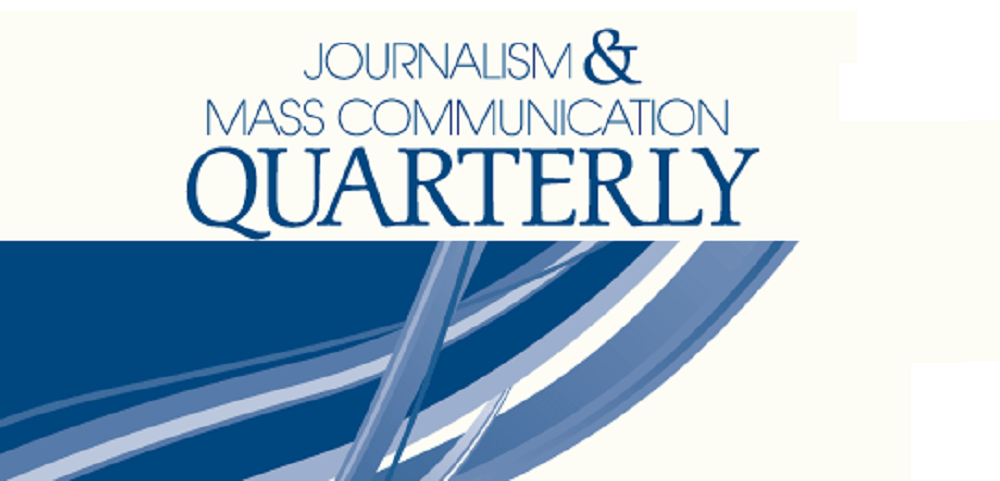

Journal Name: Journalism and Mass Communication Quarterly
Overview
Journalism and Mass Communication Quarterly (JMCQ) is a premier peer-reviewed academic journal dedicated to advancing research in the fields of journalism and mass communication. Recognized globally for its scholarly impact and rigorous standards, the journal serves as the official publication of the Association for Education in Journalism and Mass Communication (AEJMC). Since its inception, JMCQ has played a vital role in shaping the discourse around media, communication strategies, digital journalism, media ethics, and public opinion.
Published quarterly, JMCQ presents a wide array of research articles, theoretical papers, methodological studies, and critical reviews that push the boundaries of communication scholarship. It draws contributions from prominent academics, media professionals, and doctoral researchers, covering both historical perspectives and contemporary issues in mass communication. The journal accepts articles from a variety of methodological approaches, including quantitative, qualitative, and mixed-methods research.
The journal provides invaluable insights into the evolution of journalism practices, media business models, and technological impacts on communication. Its topics frequently explore news production, political communication, media effects, international journalism, audience studies, and the changing roles of journalists in the digital age.
A major strength of JMCQ lies in its global orientation and interdisciplinary appeal. While rooted in journalism and mass communication, the journal often intersects with related disciplines such as sociology, political science, cultural studies, and psychology. This broad academic lens allows it to contribute significantly to policy-making, media education, and professional practices.
Whether you're a media scholar, educator, policymaker, or industry analyst, Journalism and Mass Communication Quarterly offers authoritative research that fosters informed debate and academic inquiry. With its high impact factor and indexing in leading databases such as Scopus and Web of Science, JMCQ remains an essential resource for anyone invested in understanding the media’s role in modern society.
About
Journalism and Mass Communication Quarterly (JMCQ) is a premier peer-reviewed academic journal dedicated to advancing research in the fields of journalism and mass communication. Recognized globally for its scholarly impact and rigorous standards, the journal serves as the official publication of the Association for Education in Journalism and Mass Communication (AEJMC). Since its inception, JMCQ has played a vital role in shaping the discourse around media, communication strategies, digital journalism, media ethics, and public opinion.
Published quarterly, JMCQ presents a wide array of research articles, theoretical papers, methodological studies, and critical reviews that push the boundaries of communication scholarship. It draws contributions from prominent academics, media professionals, and doctoral researchers, covering both historical perspectives and contemporary issues in mass communication. The journal accepts articles from a variety of methodological approaches, including quantitative, qualitative, and mixed-methods research.
The journal provides invaluable insights into the evolution of journalism practices, media business models, and technological impacts on communication. Its topics frequently explore news production, political communication, media effects, international journalism, audience studies, and the changing roles of journalists in the digital age.
A major strength of JMCQ lies in its global orientation and interdisciplinary appeal. While rooted in journalism and mass communication, the journal often intersects with related disciplines such as sociology, political science, cultural studies, and psychology. This broad academic lens allows it to contribute significantly to policy-making, media education, and professional practices.
Whether you're a media scholar, educator, policymaker, or industry analyst, Journalism and Mass Communication Quarterly offers authoritative research that fosters informed debate and academic inquiry. With its high impact factor and indexing in leading databases such as Scopus and Web of Science, JMCQ remains an essential resource for anyone invested in understanding the media’s role in modern society.
Scope
Journalism and Mass Communication Quarterly (JMCQ) is a leading scholarly journal in the field of communication studies, known for its academic rigor and wide-ranging impact. Published by SAGE Publications on behalf of the Association for Education in Journalism and Mass Communication (AEJMC), JMCQ stands at the forefront of journalism and mass communication research.
With a history dating back over 90 years, JMCQ has earned its reputation as a trusted source of cutting-edge research and theoretical exploration. It is a quarterly, peer-reviewed journal that offers a platform for scholars to publish work that informs, challenges, and expands our understanding of how media influences society.
JMCQ covers a wide spectrum of topics including journalism practices, media systems, political communication, media effects, audience engagement, and more. It publishes articles that are not only methodologically sound but also relevant to current societal and media trends. The journal is a staple in university libraries, widely cited in scholarly literature, and frequently referenced in media studies curricula worldwide.
A unique feature of JMCQ is its commitment to methodological diversity. The journal welcomes both empirical and theoretical research from quantitative, qualitative, critical, and mixed-methods perspectives. This openness encourages robust academic dialogue and innovation in the field of mass communication research.
Another key strength of the journal is its global relevance. JMCQ attracts submissions from scholars across the world, fostering international collaboration and comparative studies. Whether examining local journalism or global media flows, the journal provides a critical lens through which to view media’s role in shaping public discourse and democratic engagement.
JMCQ is indexed in major academic databases, including Scopus and the Web of Science, and boasts a strong impact factor, making it a preferred venue for publication among communication scholars. The editorial board comprises leading experts and experienced reviewers committed to maintaining the highest scholarly standards.
In summary, Journalism and Mass Communication Quarterly is a cornerstone of communication research, offering a dynamic and respected forum for academic exploration, debate, and discovery. It continues to influence media scholarship and practice on a global scale, making it an indispensable resource for students, researchers, and professionals in the field.